Every year the Eclipse M7 milestone act as a very strong deadline for the projects which are part of the release train: it’s then time for polishing and refining!
Time's up ! Pencils down, it's M7 !
— Cédric Brun (@bruncedric) 4 mai 2010
When your company is responsible for a number of inter-dependent projects some of them core technologies like EMF Services , the GMF Runtime, others user facing tools like Acceleo, Sirius or EcoreTools, packaging and integration oriented projects like Amalgam or the Eclipse Packaging project and all of these releases needs to be coordinated, then may is a busy month.
This week: M7 milestones for EcoreTools, Amalgam, Sirius, testing the Modeling package. Plot twist: 3 work days ! pic.twitter.com/msqQkImRu4
— Cédric Brun (@bruncedric) 3 mai 2016
I’m personally involved in EcoreTools which makes me in the position to step in the role of the consumer of the other technologies and my plan for Oxygen was to make use of the Property Views support included in Sirius. This support allows me, as the maintainer of EcoreTools to specify directly through the .odesign every Tab displayed in the properties view. Just like the rest of Sirius it is 100% dynamic, no need for code generation or compilation, and complete flexibility with the ability to use queries in every part of the definition.
Before Oxygen EcoreTools already had property editors. Some of them were coded by hand and were developed more than 8 years ago. When I replaced the legacy modeler by using Sirius I made sure at that time to reuse those highly tuned property editors. Others I generated using the first generation of the EEF Framework so that I could cover every type of Ecore and benefit from the dialogs to edit properties using double click. The intent at that time was to make the modeler usable in fullscreen when no other view is visible.
Because of this requirement I had to wait for the Sirius team to make its magic: the properties views support was ready for production with Sirius 4.1, but this was not including any support for dialogs and wizards yet.
Then magic happened: the support for dialogs and wizards is now completely merged in Sirius, starting with M7. In EcoreTools the code responsible for those properties editors represents more than 70% of the total code which peaks at 28K.
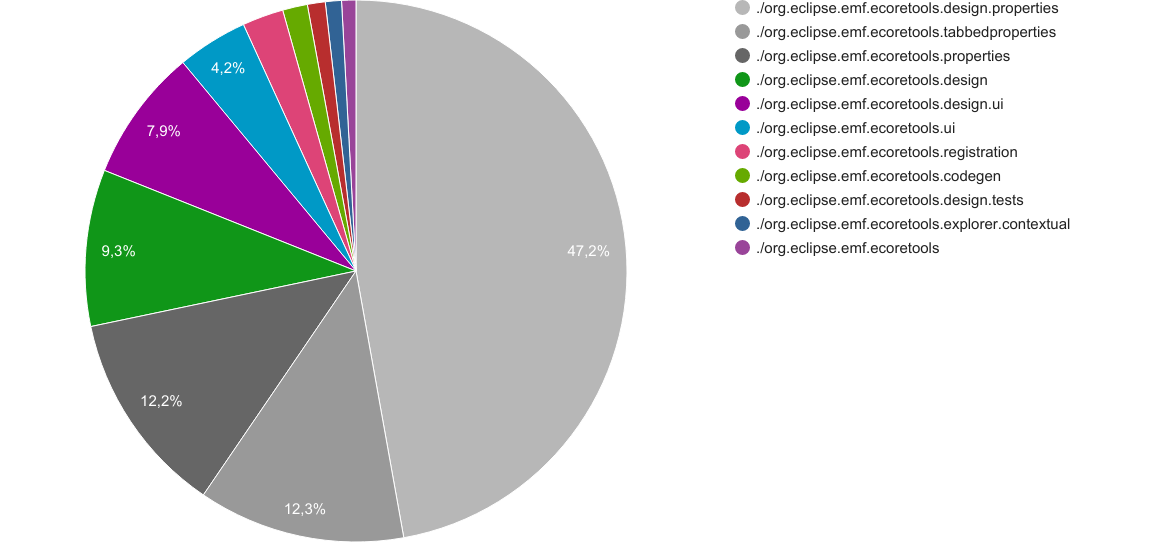
In gray those are the plugins which are subject to removal once I use this new feature, as a developer one can only rejoice at the idea of deleting so much code!.
I went ahead and started working on this, the schedule was tight but thanks to the ability to define reflective rules using Dynamic Mappings I could quickly cover everything in Ecore and get those new dialogs working.
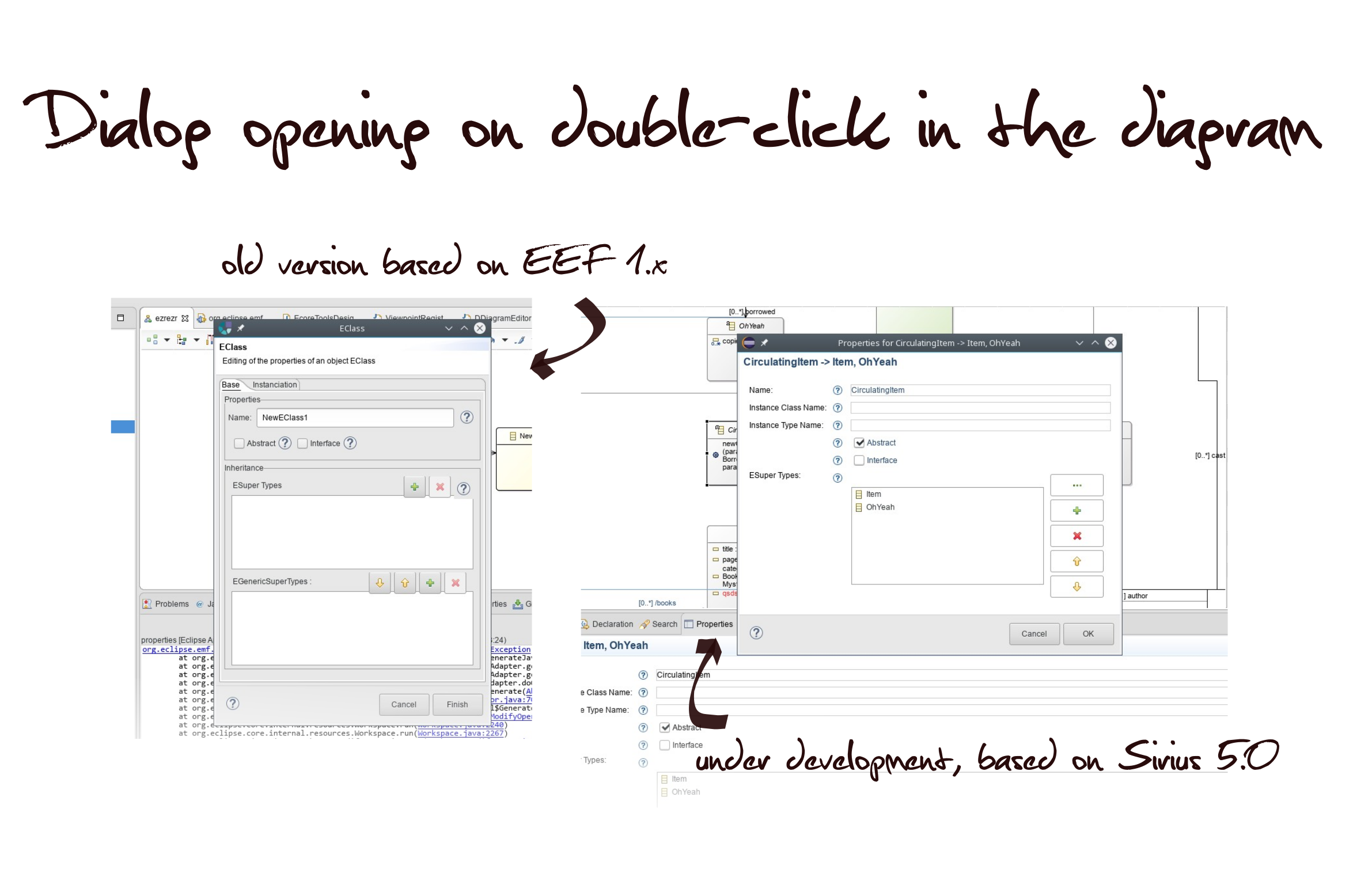
Just by using a dozen reflective rules and adding specific Pages or Widgets when needed.
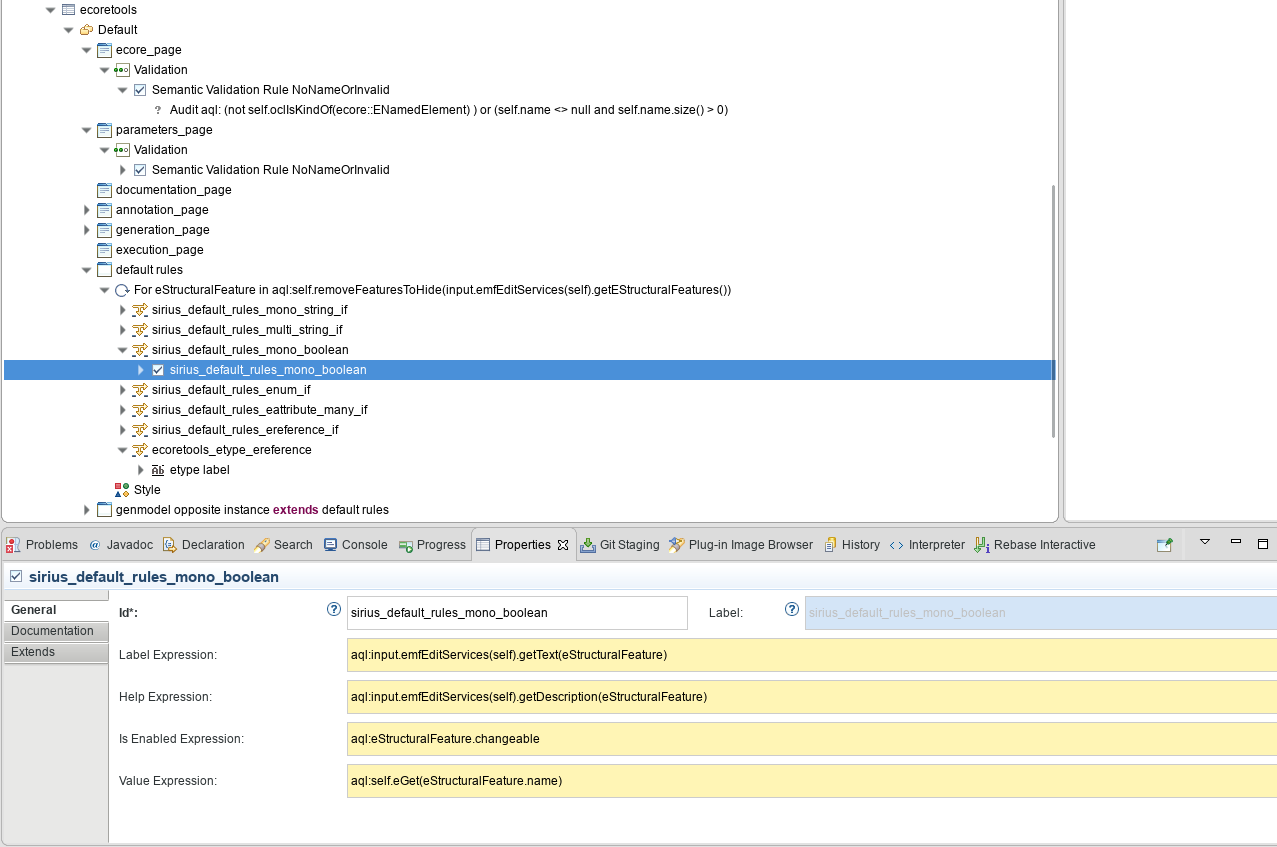
It went so fast I could add new tools for the Generation Settings through a specific tab.
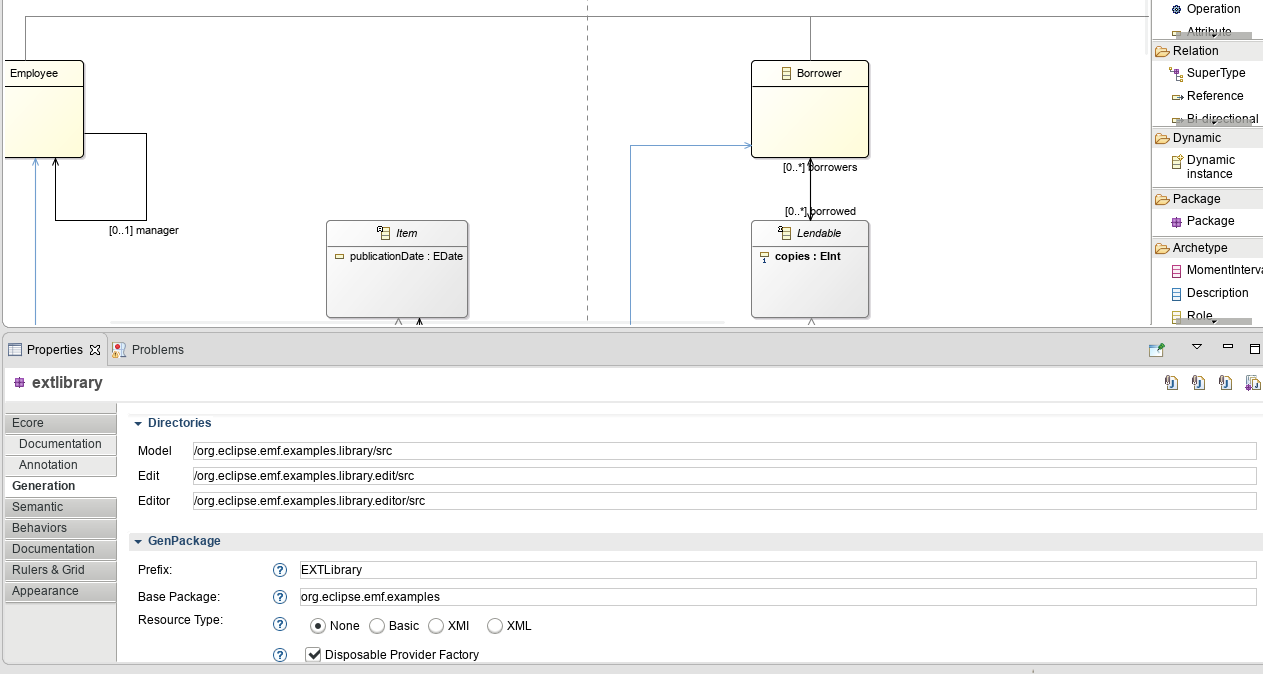
And even introduce a link to directly navigate to the Java code generated from the model:
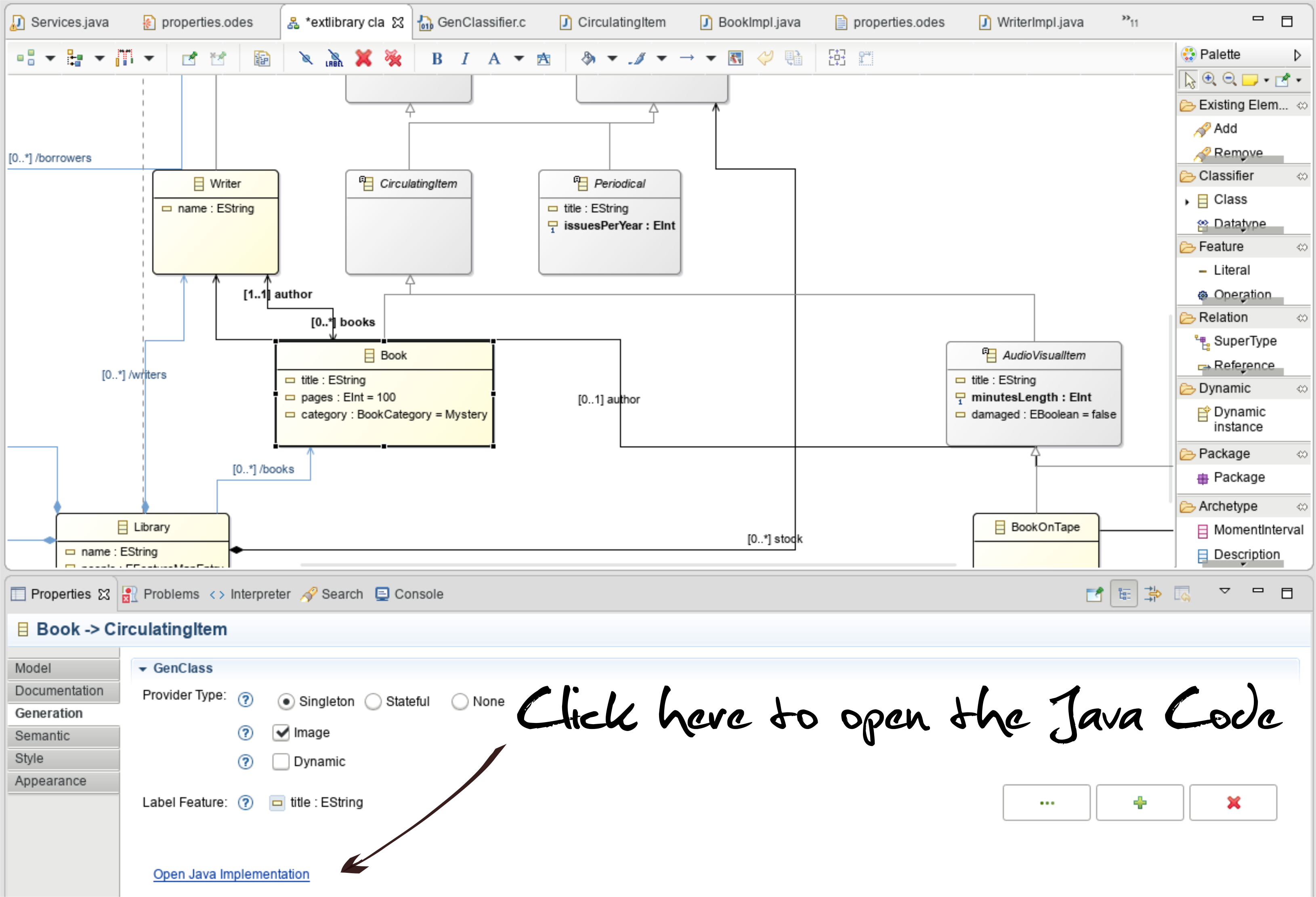
Even support for EAnnotations could be implemented in a nice way:
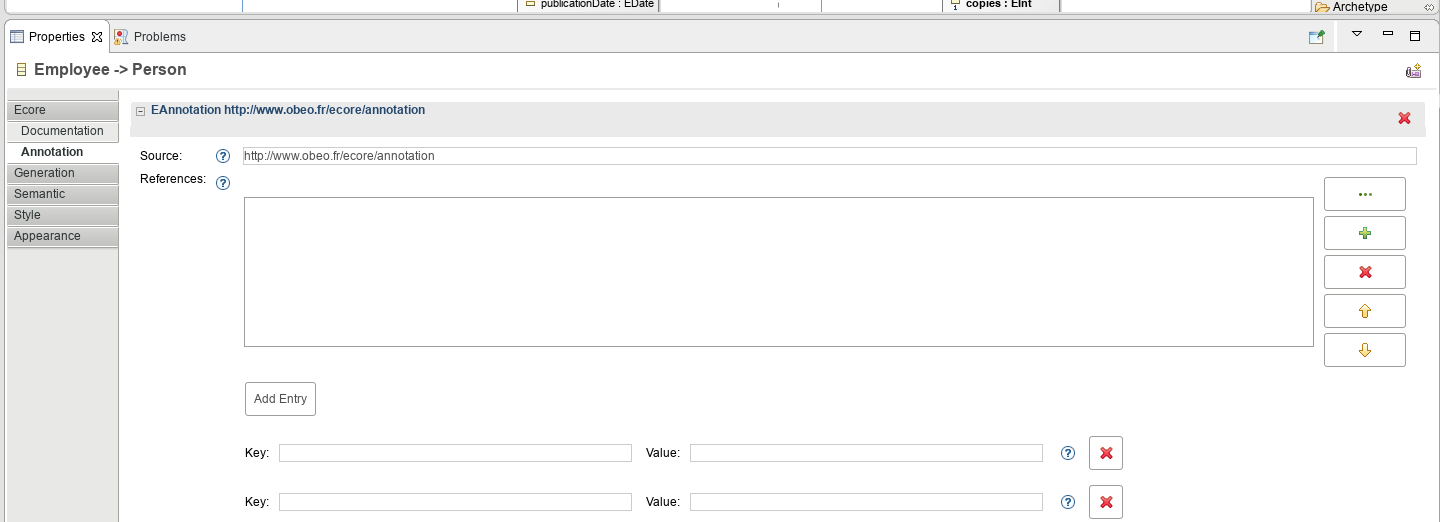
As a tool provider I could focus on streamlining the experience, providing tabs and actions so that the end user don’t have to leave the modeler to adapt the generation settings or launch the code generation, give visual clues when something is invalid. I went through many variants of these UIs just to get the feel of it, as I get an instant feedback I only need minutes to rule out an option. I have a whole new dimension I can use to make my tool super effective.
This is what Sirius is about, empowering the tool provider to focus on the user experience of its users.
It is just one of the many changes which we’ve been working on since last year to improve the user experience of modeling tools, Mélanie and Stéphane will present a talk on this very subject during EclipseCon France at Toulouse: “All about UX in Sirius.”.
All of these changes are landing in Eclipse Oxygen starting with M7, those are newly introduced and I have no doubt I’ll have some polishing and refining to do, I’m counting on you to report anything suspicious
